The Benefits and Risks of Consuming Pregnancy Sour Cream During Gestation? 2023
With its thick, creamy consistency and tangy flavor, sour cream is a go-to ingredient for many dishes. Especially in dips and sauces, it often adds the perfect touch of umami to turn a dish from ordinary to extraordinary. As if that wasn’t enough reason to reach for the sour cream, reports have surfaced that many pregnant women use sour cream as an alternative to yogurt or as part of their own pregnancy cravings. Consuming sour cream while pregnant.
But can eating sour cream while pregnant really be safe? Though there are plenty of options out there when it comes to topping your potatoes or adding deliciousness to your dip – eating your own sour cream might not always be the best choice. With listeria found in unpasteurized dairy such as ice cream, queso fresco, and store-bought soft cheeses, pregnancy nutrition experts often agree that it’s best to avoid high-risk foods altogether during this time – and unfortunately, this includes homemade sour cream.
Pregnant women should take care to make sure that any sour cream they consume is pasteurized. Sour cream dip can be an easy and delicious addition to any meal, however pregnant women should pay close attention to the ingredients list when purchasing store-bought sour cream.
Homemade or “own” sour cream can often be made from raw milk, making it unsafe for pregnant women to eat. Therefore, parents should opt for commercially bought sour cream whenever possible in order to ensure their safety and reduce the risk of foodborne illness.
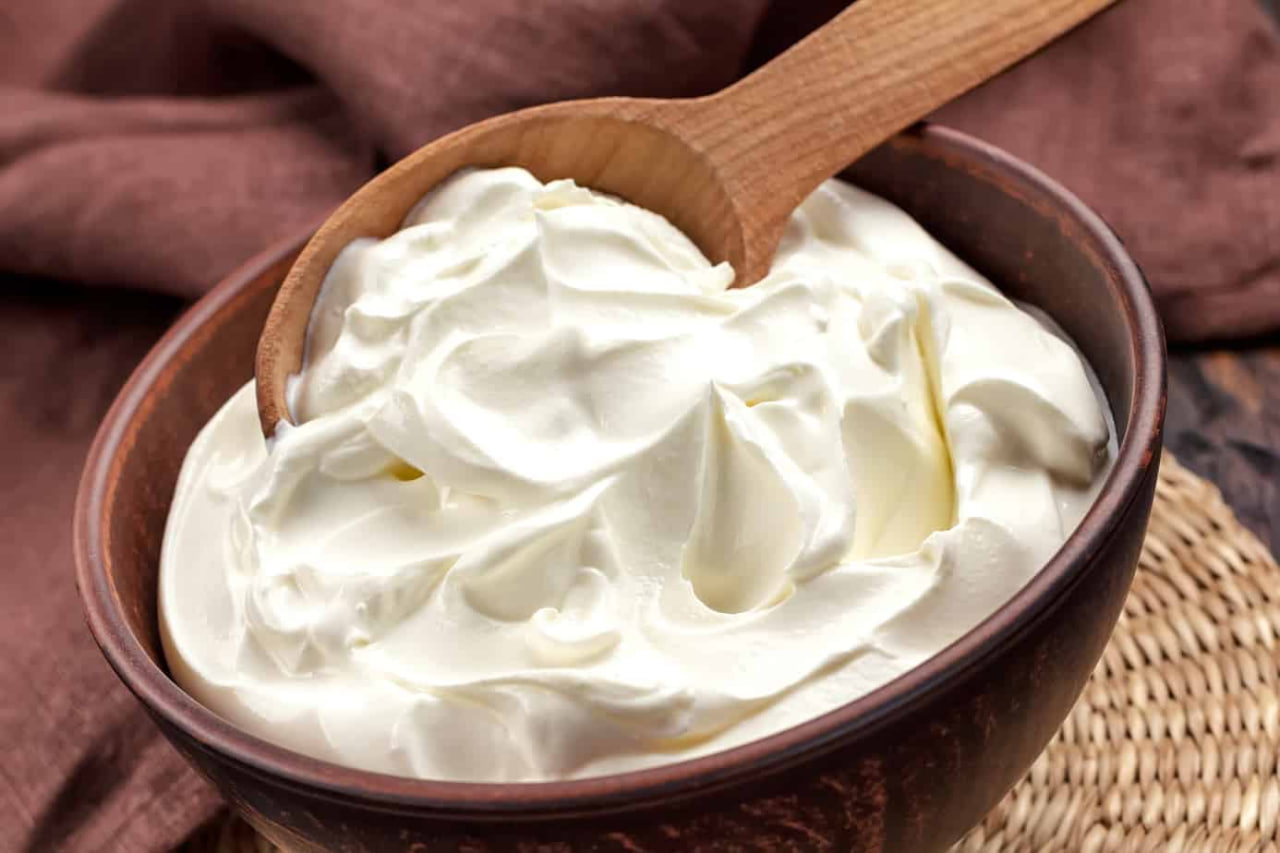
What is Sour Cream?
Sour cream is a deliciously thick, rich and tangy treat that adds an extra special something to all kinds of recipes. Whether you’re whipping up some decadent creamy frosting or just adding the perfect finishing touch on top of your soup or baked potato, it always brings out the best in dishes – making them even tastier with its delightful pop of flavor!
For those looking to get creative in the kitchen, homemade sour cream can be easily made by blending heavy whipping cream with a splash of vinegar or lemon juice and some milk. However, if time is limited there are many supermarket options that offer creamy convenience while still providing quality flavor – just remember to check for added preservatives!
Relevant post >> Can you eat deviled eggs while pregnant?
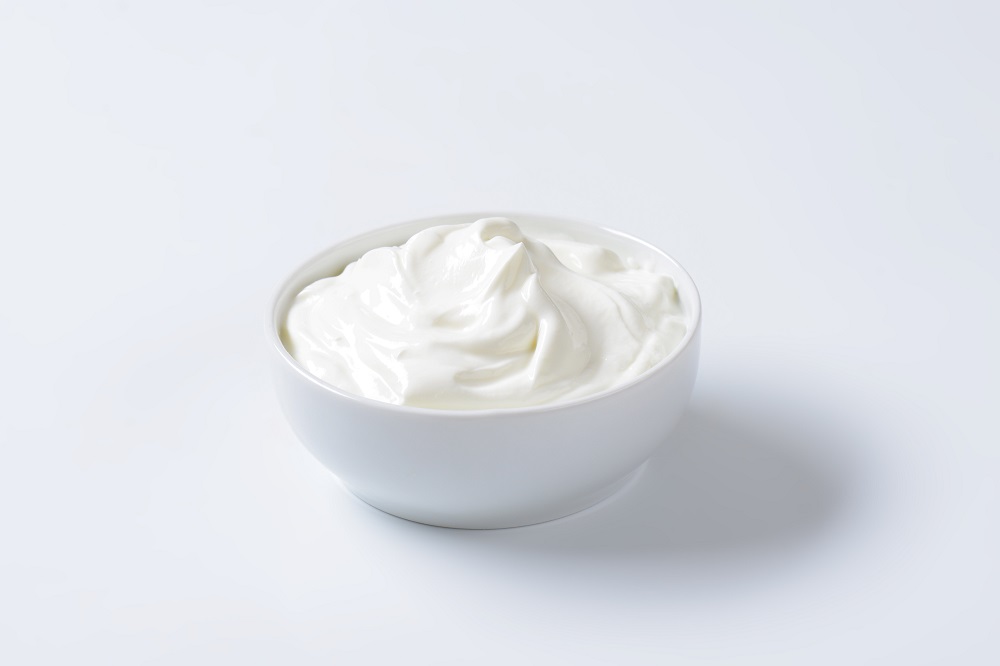
Creamy, tangy sour cream is a staple of many dishes. The US Food and Drug Administration (US FDA) mandates that it must contain at least 18 percent milkfat – making its butter-like flavor an unavoidable delight in dips, sauces or even as a topping for tacos!
Sour cream is a versatile culinary asset that adds the perfect finishing touch to many dishes. Whether spooned over tacos, smeared on top of chili fries, or even stirred into sauces as a rich and creamy addition – this cooling condiment has you covered! Just be sure not to heat it up too high, otherwise it might curdle in an instant.
Pasteurized vs Unpasteurized Sour Cream
Pasteurization
Around a century ago, Louis Pasteur revolutionized the dairy industry with his ingenious process of pasteurization. Designed to make milk safe for human consumption, this procedure could drastically reduce illnesses caused by drinking raw milk – an issue plaguing society at that time due to its prevalence of pathogenic organisms in untreated beverages. With one discovery, Louis Pasteur was able to bring about significant improvement in health standards and public safety.
Pasteurization is a process designed to protect us from dangerous pathogens by subjecting milk and its products to intense heat. An effective technique for this purpose is heating the liquid up past 72 degrees Celsius for 15 or more seconds, ensuring reliability in providing safe food consumption (Lucey, 2015).
To ensure the health and wellbeing of both mother and baby, pregnant women should only consume dairy products that have gone through pasteurization. To meet these safety standards set by the FDA, all sour cream produced in America must be made from pasteurized milk.
Pregnant women should take extra caution when it comes to their dietary choices; always opt for pasteurized sour cream over unpasteurized varieties, as the process ensures safety and quality. Buying sour cream be sure to double-check that a product has been verified by looking at the label!
In addition, consuming pasteurized sour cream during pregnancy can be a great way to add calcium, protein, and other essential nutrients to the diet, which can promote the healthy development of the baby and support the well-being of the mother.
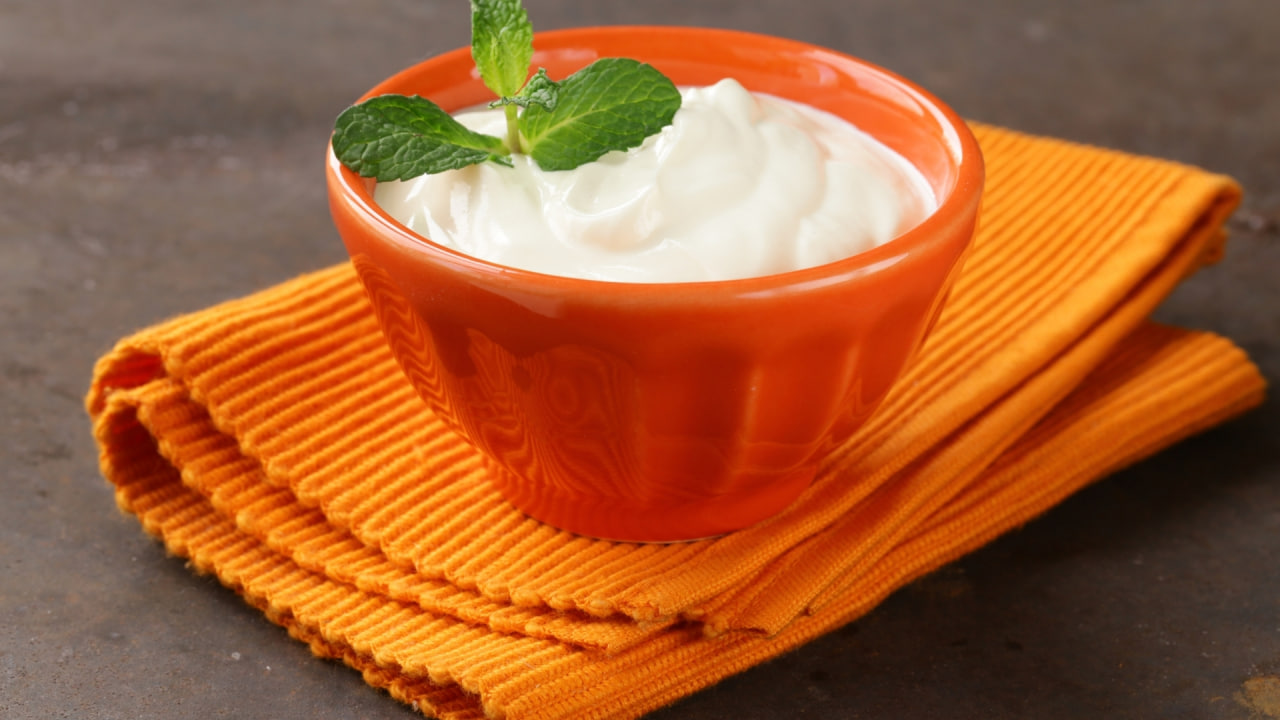
Unpasteurized Dairy
No matter how delicious it may be, pregnant women should exercise caution when indulging in homemade ordinary sour cream. Store-bought brands are often safer than farm-made or barn door sales options due to the potential cross contamination and improper pasteurization of milk that could cause harm during pregnancy.
Raw milk and its derivatives are commonly contaminated with harmful microorganisms, which can act as major carriers of food-borne illnesses. From the infected udders of cows to contact with a farm’s unsanitary environment – these pathogens have numerous routes for entering our dairy products (Oliver et al., 2005).
In 2015, Michel and his team uncovered a startling discovery – the harmful bacteria Mycobacterium bovis can survive in fresh and soured milk! This poses an alarming public health risk to rural communities in Southern Africa who consume unpasteurized dairy products as part of their daily diet. If contaminated food is ingested, it could lead to zoonotic tuberculosis infection among humans due to this dangerous bacterium.
Expecting mothers must be aware of the dangers associated with consuming unpasteurized milk and milk-based food items. If these foods can’t be avoided, they should at least go through a cooking or heating process to reach 165°F (74°C) in order to reduce any potential risk for listeriosis according to Taylor & Galanis (2010).

Listeriosis
Listeriosis is a rare yet dangerous food-borne disease caused by the bacterium Listeria monocytogenes, which disproportionately affects those with weakened immune systems such as pregnant women and newborns. In fact, research has shown that expecting mothers are nearly twenty times more likely to be infected than the general population (Madjunkov et al., 2017). Needless to say: it pays off for everyone involved – especially moms-to-be – to stay aware of this silent threat!
During pregnancy, listeriosis can create a dangerous situation for all parties involved. Moms suffer from mild flu-like symptoms while their unborn children are at high risk of death; in fact, up to 35% don’t survive fetal listeriosis and even after birth the danger persists with neonatal disease sometimes causing fatalities as great as 20%. Even though pregnant women have much more to worry about than ever before – including protecting those they carry within them – there is hope that awareness around this health concern will rise, reducing its devastating effects on so many families.
Pregnant women are especially vulnerable to listeriosis, an illness linked with serious complications in their unborn child or newborn such as miscarriage, sepsis and even death. According to recent research, consuming high-risk dairy products or other contaminated food sources can dramatically increase a pregnant woman’s risk of this potentially dangerous infection (Lamont et al., 2011; Moran et al., 2018).
Expectant mothers should be especially aware of the risks posed by listeriosis and take extra precautions to protect themselves. Pasteurized dairy products are essential for safe consumption, while good hygiene during food handling can help minimize any potential exposure from other sources. Protecting yourself through prevention remains paramount in controlling this dangerous disease (Madjunkov et al., 2017; Moran et al., 2018).

Tips on Sour Cream and/or Dairy Consumption During Pregnancy
Pregnancy is an important time for mothers and their little ones, so it’s essential to make sure you’re making the best dairy choices. The UK National Health Service (NHS) offers helpful advice on what to look out for during this special period – from full-fat milk with added vitamins A & D; low fat plain yogurt drinks and hard cheeses such as Cheddar or Edam that are safe when eaten in moderation. Making healthier food decisions will not only benefit mother but also her growing baby!
- A mother’s health prior to and during pregnancy is of utmost importance, especially when it comes to calcium intake – the mineral responsible for strong bones. Dairy products are an essential part of a nourishing diet in order to guarantee not only mom’s wellbeing but also fetal bone development!
- Pregnant women should opt for light and healthy versions of dairy products to reap the nutritional benefits while avoiding added fat or sugar.
- Many unsuspecting dairy products can be harmful if consumed in their raw form. Cheese enthusiasts should steer clear of brie, camembert, chèvre and Roquefort unless they are using them for a cooked dish. Gourmands beware!
- Expectant mothers should consume cream sparingly as it is high in fat, making moderation a key factor for healthy pregnancies.
- To ensure a healthy diet, it’s important to stick with pasteurized milk and dairy products. Heat treatment kills any harmful bacteria that may be lurking inside so you can enjoy your favorite dairy treats without worry!
- When it comes to dairy, consumer safety should be top of mind. Be sure to read labels and ask questions about where the food is coming from before you make a purchase at your local farmers’ market—especially if looking for unpasteurized items.
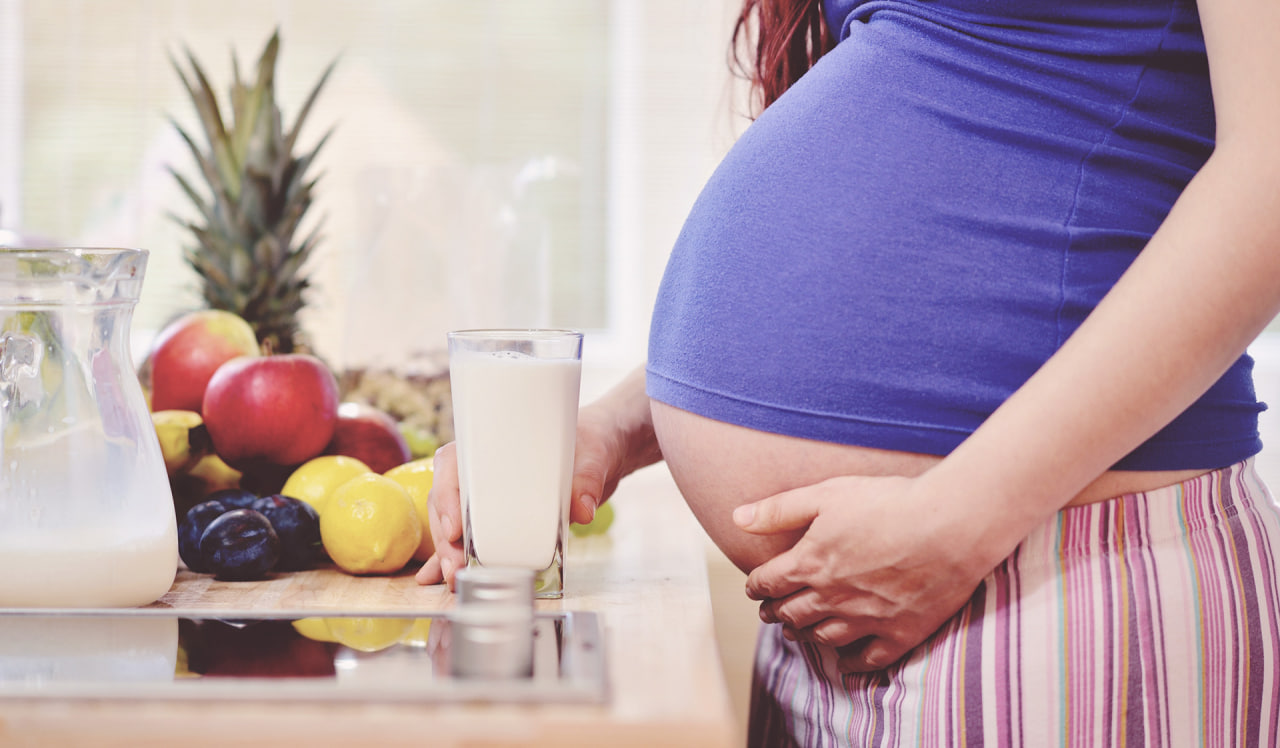
Final Thoughts
Pregnancy can be a time of celebration and nourishment, with dairy foods providing both expectant mothers and their babies the essential nutrients they need. From protein-packed yogurt to calcium-rich cheese, these nutrient sources make great additions to your pregnancy diet – including sour cream products as long it has been pasteurized!
Pregnant mamas should steer clear of unpasteurized sour cream, as it can pose risks to their unborn baby. For peace of mind in the kitchen, always check labels for “pasteurized cream” before digging into your next dollop!
Eating sour cream can be an important part of your diet during pregnancy, but you’ll need to make sure that the sour cream you eat is light without added sugar. This variety has fewer calories and less fat than conventional restaurant sour cream.
Light sour cream also contains lactic acid bacteria, which can support healthy digestion while maintaining a balanced diet. However, before deciding on adding sour cream product to your daily diet, it’s always wise to consult with your doctor as they have experience in determining what foods should be avoided or consumed during pregnancy.
Read more: Benefits of using apple cider vinegar during pregnancy
FAQ
Is all sour cream pasteurized?
Not all sour cream is pasteurized. However, most sour cream available in grocery stores is pasteurized. It is important to check the label to ensure that the sour cream you purchase is pasteurized. Unpasteurized sour cream may contain harmful bacteria and should be avoided, especially by pregnant women, young children, and people with weakened immune systems.
Can you eat sour cream when pregnant NHS?
Yes, you can eat sour cream when pregnant. However, it is recommended to choose pasteurized sour cream and consume it in moderation to avoid any potential risk of foodborne illnesses.
Does sour cream have raw eggs?
Sour cream does not typically contain raw eggs. The traditional recipe for sour cream only includes two ingredients: cream and a bacterial culture. Some store-bought sour cream may contain additional ingredients such as thickeners or preservatives, but raw eggs are not typically one of them. However, it is always important to check the label and ingredient list to ensure the safety of the product.
Is natural sour cream pasteurized?
Yes, natural sour cream is typically made from pasteurized cream and milk. The pasteurization process involves heating the cream and milk to kill any harmful bacteria, including those that can cause foodborne illness, so that the final product is safe to consume. It’s important to check the label to ensure that the sour cream you are buying is made from pasteurized dairy products.
What is sour cream made of?
Sour cream is a dairy product that is made by fermenting cream with lactic acid bacteria. The bacteria ferment the cream, thickening it and giving it a tangy, sour taste. Some sour cream products may also contain additional ingredients such as milk, salt, and stabilizers.
What’s the difference between natural sour cream and regular sour cream?
There is typically no difference between “natural” and “regular” sour cream. The term “natural” is not regulated and can vary in meaning depending on the brand or manufacturer. Both types of sour cream are made from cream that has been pasteurized and cultured with lactic acid bacteria, which gives it its characteristic tangy flavor and creamy texture. Some brands may add additional ingredients or thickeners to their sour cream, so it is always a good idea to check the ingredient list to ensure that it meets your dietary preferences or needs.
Why is sour cream called sour cream?
Sour cream is called sour cream because it is made by fermenting regular cream with lactic acid bacteria, which cause the cream to thicken and sour. The bacteria produce lactic acid as they consume the lactose in the cream, giving it a tangy and slightly sour flavor.
Our previous article 15 Signs Of Pregnancy To Know If You Are Pregnant in the title Am I pregnant ve pregnancy exercises information is provided..











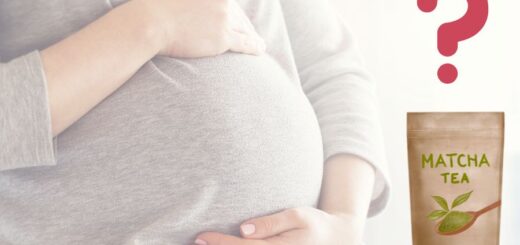
1 Response
[…] Read more: Can you eat sour cream while pregnant? 2023 […]